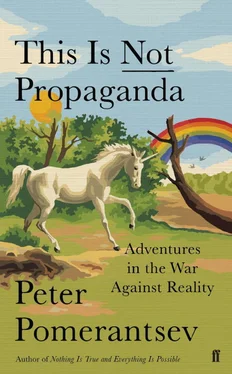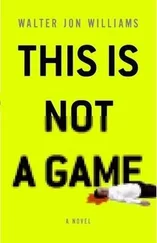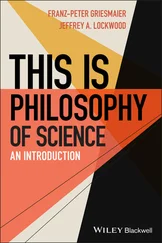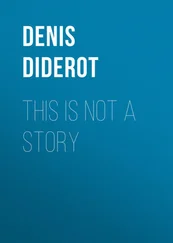*
The Brexit vote had been one way of reconfiguring identity around a notion of ‘the people’. But it would be a mistake to think it was the only way of reorganising political identity. For the next general election the Labour Party quickly came up with its own formula. Its slogan became ‘For the many, not the few’. ‘The many’ combined utterly different groups, from those in the north of the country who voted for Brexit and resented well-heeled west Londoners, to well-heeled west Londoners who had voted to stay in the EU and thought Labour would reverse the Brexit vote. Labour managed to gather enough votes in the election to destroy the Conservative Party’s majority. ‘The people’ had been reconfigured into ‘the many’, the ‘enemies of the people’ into ‘the few’.
We are living through a period of pop-up populism, where each social and political movement redefines ‘the many’ and ‘the people’, where we are always reconsidering who counts as an ‘insider’ or an ‘outsider’, where what it means to belong is never certain, where bubbles of identity burst, crack and are then reformed as something else. And in this game the one who wins will be the one who can be most supple, rearranging the iron filings of disparate interests around new magnets of meaning.
One person excited by Labour’s rise was Chantal Mouffe, the theorist who first formulated the idea of populism as a strategy, and who wanted to reinvent the left for an age when categories of economic class were no longer fixed.
Her husband Ernesto Laclau has passed away, but Mouffe is as active as ever. When we met in Vienna and then at her apartment full of plants and books in London, she told me that despite living in the UK since 1972, she had never felt British (it was the humour she couldn’t understand), but she now saw a great change taking place in the country where she had lived for so long, and throughout much of the rest of the world as well.
In the decades since the 1980s – and the victory of capitalism over Communism in the Cold War – we have lived, argues Mouffe, within a sense of ‘normal’ to which there has seemed to be no alternative. Terms that had been so important for those struggling under authoritarian rule Mouffe saw as having been co-opted by economic interests. ‘Choice’ had become a way to justify relinquishing public control of schools and hospitals; ‘liberty’ had transmuted to selling off state assets.
‘Thatcher managed to convince people that the state could only deliver benefits in a collectivist, oppressive way, while privatisation would bring you liberty,’ Mouffe told me in her highly accented English. ‘Liberal democracy’, she argued, had been skewed too far in favour of the word ‘liberal’, which had been used to privilege giving more freedom to financial powers, while what we needed was more ‘democracy’, or what she termed ‘equality’. It was as if she wanted to prise apart words which, she felt, had been soldered together incorrectly.
Since the financial crash in 2008 everything was up for grabs again. It is in the space where words, desires, meanings and behaviours are put together and dissolved that the most important battles for power are played out, similar to Hizb’s process of ‘culturing’. This is what defines ‘normal’. Mouffe used the term ‘meta-politics’, coined by the Italian philosopher Antonio Gramsci, to denote this process.
Mouffe is much more than a theorist, having worked with the Podemos movement in Spain and La France Insoumise in France. She told me an anecdote from France, where left-wing politicians had travelled to parts of the country that had always voted for the right-nationalist, anti-immigrant party of Marine Le Pen and tried to convince them that their actual enemy wasn’t foreigners but the financial elites who kept them poor. ‘Identities are the result of political construction,’ she asserted.
But for all of Mouffe’s enthusiasm, I was also worried. Hadn’t some of the old freedoms, if one could still use that term, been there for good reason? Mouffe spoke about the need for a charismatic leader as an ‘articulating agent’ who could bring together the very different causes and grievances of the newly created ‘people’; about the need for strong passions, the expressions of our deepest, unconscious drives, to bind them; about how important it was to define the enemy. [6]She argued this could be done within democratic rules, but it wasn’t hard to imagine how it could turn into something frightening.
Mouffe agreed it is a dangerous time. ‘It can go into a more authoritarian direction, or it can go also towards a more democratic thing. The whole question is how you construct the “us” and “them”.’
There was perhaps no one who understood the game better than Martin Sellner, the Identitarian leader whom we met in Part 2 using Srdja Popović’s protest tactics to pursue his vision of a ‘culturally homogeneous’ Europe.
‘We don’t want Mehmed and Mustafa to become Europeans,’ the manifesto for Génération Identitaire runs. ‘Europe belongs to the Europeans alone. Because we are Generation Identity.’
Sellner, like Mouffe, talked about meta-politics (and Gramsci). When I reached out to him again, this time for a BBC radio documentary, he explained that ‘Our job as the avant-garde from the right is to show the people that the normality of tomorrow doesn’t have to be what is considered normal today. Political normality is something very volatile, dynamic and relative.’
He taps into the language of rights and freedoms – women’s rights especially – and connects them to his aims. In one stunt female Identitarians attended a meeting in support of women’s rights in Germany, and then let off rape alarms to advertise cases of rape by Muslim migrants (of which there have been several, though the vast majority of sexual assaults are committed not by wandering migrants, but by people who know the victim well). In another stunt Sellner put a burqa over the statue of the Austro-Hungarian Empress Maria Theresa in Vienna. But instead of violence his language invokes freedom of speech, democracy, openness to new ideas…
‘The powerlessness of our enemies is they are still trying to describe and fight us as if we were the old right-wing fringe-group parties that they faced decades before,’ he told the programme I presented, as we all worried whether by interviewing him we were only helping to make him all the more mainstream, if such a concept even existed still.
The Future Arrived First in Russia
As I wondered about these endless transformations of ‘the many’ and ‘the people’, these desperate, fluctuating attempts to reinvent identity on the fly, I was struck by how I’d seen all of this before – in Russia, where I lived between 2001 and 2010.
‘I first invented the idea of the Putin majority,’ one of President Putin’s early spin doctors, Gleb Pavlovsky, had told me when I still lived in Moscow, ‘and then it appeared!’
I had left Russia in 2010 because I was exhausted with living in a system where, as I’d put it in a previous book, unconsciously invoking Hannah Arendt, ‘nothing is true and everything is possible’. Those were still relatively vegetarian days in Moscow, before the invasion of Ukraine (though the invasion of Georgia and carpet-bombing of Chechnya should have been premonitions), but it was already a world where spectacle had pushed out sense, which left gut feeling as the only means of finding one’s way through the fog of disinformation. I returned to London because, in the words of my naive self, I wanted to live in a world where ‘words have meaning’, where every fact was not dismissed with triumphant cynicism as ‘just PR’ or ‘information war’.
Читать дальше












